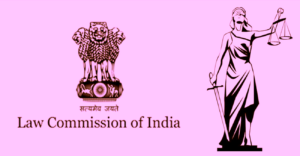In anticipation for the Winter Session of Parliament that starts next week, the government on Wednesday released a list of 18 bills, three of which would replace the criminal laws and two of which would expand the reach of the women’s reservation act to include Jammu and Kashmir and Pondicherry.
During the next winter session of Parliament, the government intends to present seven fresh bills, one of which will expand the provisions of the women’s quota bill to include Jammu & Kashmir and Pondicherry.
Prior to the session, which is slated to take place from December 4 to December 22, Union Minister for Parliamentary Affairs Pralhad Joshi has called for an all-party meeting on December 2.
The session in which the government is eager to pass important laws will be significantly impacted by the outcomes of the assembly elections.
During the meeting, the Ethics Committee’s report about the “cash-for-query” accusations made against TMC MP Mahua Moitra will be presented to the Lok Sabha. Before the panel’s proposed expulsion takes effect, the House must approve the report.
The J&K Bills
The Amendment to the J&K Reorganization Bill aims to designate two people, each of whom will be a woman, as MLAs of the Union Territory of Jammu & Kashmir from the “Kashmiri migrants” community.
The following bills were introduced in the Lok Sabha on July 26 but were not discussed or passed during the monsoon session: the Jammu and Kashmir Reservation (Amendment) Bill, 2023; the Jammu and Kashmir Reorganisation (Amendment) Bill, 2023; the Constitution (Jammu and Kashmir) Scheduled Castes Order (Amendment) Bill, 2023; and the Constitution (Jammu and Kashmir) Scheduled Tribes Order (Amendment) Bill, 2023.

At the Muthi neighborhood of Jammu on November 23, 2023, representatives of the Jammu and Kashmir Department of Relief and Rehabilitation prepare electoral picture identity cards for displaced Kashmiri migrants.
In addition to the bills, the government has scheduled the first round of supplemental grant requests for 2023–2024 for presentation, discussion, and voting during the session.
Women Reservation Bill
According to a September law ministry notice, President Droupadi Murmu gave his approval to the women’s reservation measure. The purpose of the bill is to provide women a 33% reservation in the Lok Sabha and state legislatures.

The UPA administration formally tabled the bill in the Lok Sabha on September 12, 1996. The law has been awaiting approval by the Parliament for the past 27 years.
After moving to the new Parliament building on Tuesday, the ‘Nari Shakti Vandan Adhiniyam’ is the first bill passed by the legislature.
Other Bills
The Lok Sabha has also been tasked with considering and passing the Bharatiya Nyaya Sanhita, Bharatiya Nagarik Suraksha Sanhita, and Bharatiya Sakshya Bill, which aim to replace the Indian Penal Code, the Code of Criminal Procedure, and the Indian Evidence Act, respectively.
The Parliamentary Standing Committee on Home Affairs reviewed the three bills and filed its reports, along with opposition members’ dissent notes.

The Post Office Bill, which was introduced in the Rajya Sabha, has also been scheduled for the Winter Session. The Chief Election Commissioner and other Election Commissioners (Appointment, Conditions of Service and Term of Office) Bill seeks to establish a three-member committee headed by the prime minister for the purpose of appointing future chief election commissioners and election commissioners.
Among the new bills are The Central University (Amendment) Bill, The National Capital Territory of Delhi Laws (Special Provisions) Second (Amendment) Bill, and The Government of Union Territories (Amendment) Bill.
The following new bills are also scheduled to be introduced in the Lok Sabha: The Central Goods and Services Tax (Second Amendment) Bill, the Provisional Collection of Taxes Bill, and the Boilers Bill.
The Advocates (Amendment) Bill, which was approved by the Rajya Sabha, and the Press and Registration of Periodicals Bill, which aims to streamline the registration process for periodicals and newspapers and eliminate several penal provisions that resulted in publisher prosecution and imprisonment, have also been scheduled for consideration and passage by the Lok Sabha.
The Lok Sabha-approved Repealing and Amending Bill has been scheduled for discussion and adoption by the Rajya Sabha.











